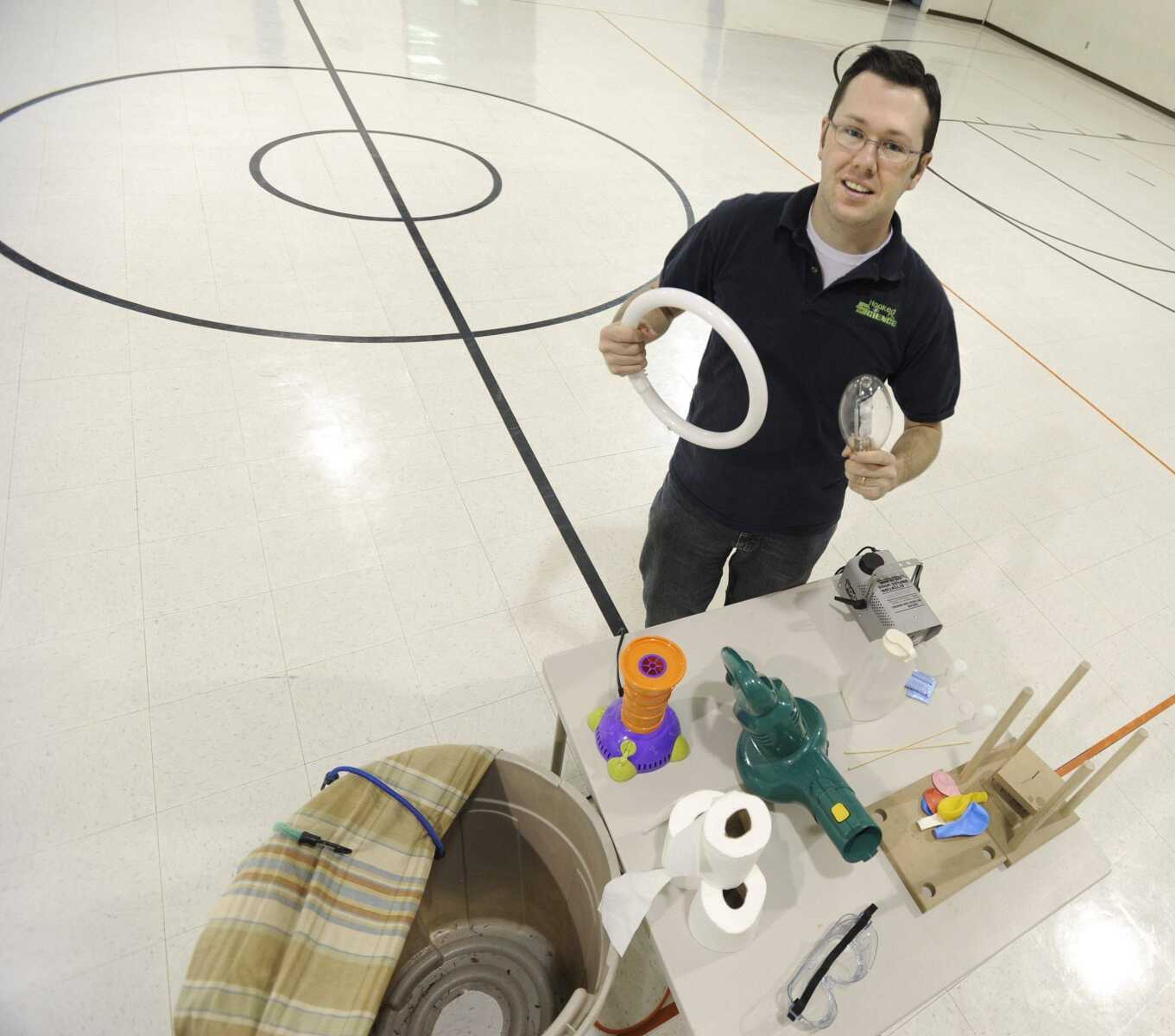Talking Shop with science educator Jason Lindsey
Jason Lindsey has used his science skills to inspire area children to become "Hooked on Science" with his demonstrations, articles and television segments for the past seven years. He's worked as a meteorologist and science reporter, but says he loves working with children most of all...
Jason Lindsey has used his science skills to inspire area children to become "Hooked on Science" with his demonstrations, articles and television segments for the past seven years. He's worked as a meteorologist and science reporter, but says he loves working with children most of all.
Question: How did you first become interested in science?
Answer: I have loved science for as long as I can remember. My parents allowed me to ask a lot of questions, encouraged curiosity and helped me become a master observer. Many times parents are intimidated by the questions kids ask. Don't be! Scientists don't even have all the answers, that's why we do research.
Q: About how many presentations do you do each year?
A: I visit about 300 schools, community events and more each year throughout Missouri, Illinois, Kentucky, Tennessee and Arkansas. Between August 2010 and January 2011 I have inspired more than 25,000 kids, via the "Hooked on Science" school program, to be inquisitive about the world around them and to develop a long-term interest in science. No other hands-on science program in our region reaches as many kids as Hooked on Science.
Q: What do you enjoy most about working with children to help them learn?
A: Kids are the reason why I do what I do! They are awesome! The best part is when you look into a kid's eyes and see that they get it! It's a moment many parents miss out on because they do not encourage their kids to ask questions and to become curious about the world around them.
Q: Do you see the importance of science education increasing in the future? Why?
A: Yes! The reason, international studies show that the United States continues to lag behind other countries in students' knowledge of science. On virtually every measure available -- from initial tests to national tests such as the National Assessment of Educational Progress -- students in the United States have ranked poorly. The poor rankings for U.S. students in these major tests provide alarming evidence that most of our students are not being prepared for a world that is shaped by science and technology. Bottom line, if we don't start pushing for more science education and stop teaching the "test" our society will not remain competitive in an advanced technological era.
Q: Your biography on your website says you previously worked as a meteorologist, backpack journalist, science reporter and webmaster. Do you have a favorite job among these? How did they all help prepare you for what you are doing now?
A: While I love forecasting the weather and telling stories on television, I love getting kids "Hooked on Science" the most. God has blessed me with this talent and God is the reason why "Hooked on Science" is a big success. All of my past jobs have prepared me for what I do now. Most of all they have showed me that you have to work hard in life and that you must first discover your God-given talent before you will ever be happy in life.
Q: What's the strangest science-related question you've ever been asked?
A: Kids will ask some of the most unique questions and when they ask them on live television you have to be prepared. During a 30-minute television segment, I was using vinegar and baking soda to teach a group of kids about chemical reactions. A little girl asked me, "Can you use vinegar to kill the bugs in your hair?" Apparently, her mom used vinegar to kill lice a few years back.
Again, this is what makes my job the best.
Connect with the Southeast Missourian Newsroom:
For corrections to this story or other insights for the editor, click here. To submit a letter to the editor, click here. To learn about the Southeast Missourian’s AI Policy, click here.






